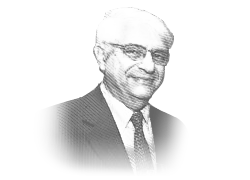Extending the core ideas and insights pioneered by Max Weber and his influential book, Economy & Society
CSES is an incubator and training center focused on advancing the sociological analysis of economic markets and economic action. Inspired by Max Weber and his influential book Economy and Society, CSES’s mission is to extend the core ideas and insights pioneered by Weber in a new institutionalist approach to the study of economy, society, and policy.
CSES was established in 2001 by Provost Biddy Martin with a grant from the Atlantic Philanthropies. The motivating vision for the Center was interest in the new institutionalism in sociology at Cornell, involving an on-going exchange between cross-disciplinary networks of scholars who participated in a series of conferences and workshops organized by Victor Nee.
The Network-and-Institutions Approach
In the 1990s, these events brought together leading sociologists and economists—including Mary Brinton, Paul DiMaggio, Robert Ellickson, Jean Ensminger, Robert Frank, Mark Granovetter, Avner Greif, Gary Hamilton, Rosemary Hopcroft, Siegwart Lindenberg, Douglass North, Alejandro Portes, David Stark, Ivan Szelenyi, Bruce Western, Harrison White and Oliver Williamson. Out of these exchanges evolved the network-and-institutions approach in economic sociology.
A talented group of graduate students in economic sociology contributed to this Cornell approach to the new institutionalism through co-authored papers, including Yang Cao, Paul Ingram, Lisa Keister, and Rebecca Matthews. The first publication produced from the 1990s workshops and conferences at Cornell was, The New Institutionalism in Sociology (1998) published by the Russell Sage Foundation, which was the winner of the James S. Coleman best book award of the American Sociological Association. The ideas brought together in cross-disciplinary meetings at Cornell in the new institutionalism led to the founding of the Center for the Study of Economy and Society.
Founders
CSES founding director, Victor Nee, the Frank and Rosa Rhodes Professor, developed the Center’s intellectual program in close collaboration with Richard Swedberg, who had just joined the Cornell faculty as Professor of Sociology after many years at the Stockholm University. Nee and Swedberg envisioned CSES as a center dedicated to advancing economic sociology through an active program of sponsored research, graduate training, and cross-disciplinary conferences, workshops, symposia, and seminars. At CSES’s first symposium in October of 2000, external board members, Francis Fukuyama and Neil J. Smelser joined Cornell faculty in the departments of Economics and Government to inaugurate the Center as a research center in the College of Arts and Sciences.
“As economic sociology moves beyond the earlier embeddedness perspective, the challenge is to specify and explicate the social mechanisms determining the relationship between the informal social organization of close-knit groups and the formal rules of institutional structures monitored and enforced by organizations and states.” —Victor Nee
CSES Events & Publications
CSES has organized conferences, workshops and lecture series that have mobilized and supported a vibrant community of scholars focused on economy and society research, and have lead to the publication of a number of important books. At CSES’s first conference on “The Economic Sociology of Capitalism” in September 28-29, 2011, economic sociologists—including Mitchell Abolafia, James Baron, Mary Brinton, John Campbell, Gerald Davis, Paul DiMaggio, Peter Evans, Neil Fligstein, John Freeman, Francis Fukuyama, Victor Nee, Douglass North, AnnaLee Saxenian, Richard Swedberg, Viviana Zelizer—and the economist Douglass North presented papers on the economic and political institutions of capitalism. This conference resulted in the publication of the book The Economic Sociology of Capitalism (2005) by Princeton University Press. In 2004, Victor Nee and Richard Swedberg organized the “Conference on Norms, Beliefs, and Institutions of Capitalism” to mark the 100th anniversary of Max Weber’s Protestant Ethnic and the Spirit of Capitalism. This resulted in the third Center publication, On Capitalism (2007) by Stanford University Press.
CSES has supported numerous large-scale funded research projects including Douglas Heckathorn’s pioneering work in respondent-driven sampling and Victor Nee’s research on the rise of capitalism in China.

